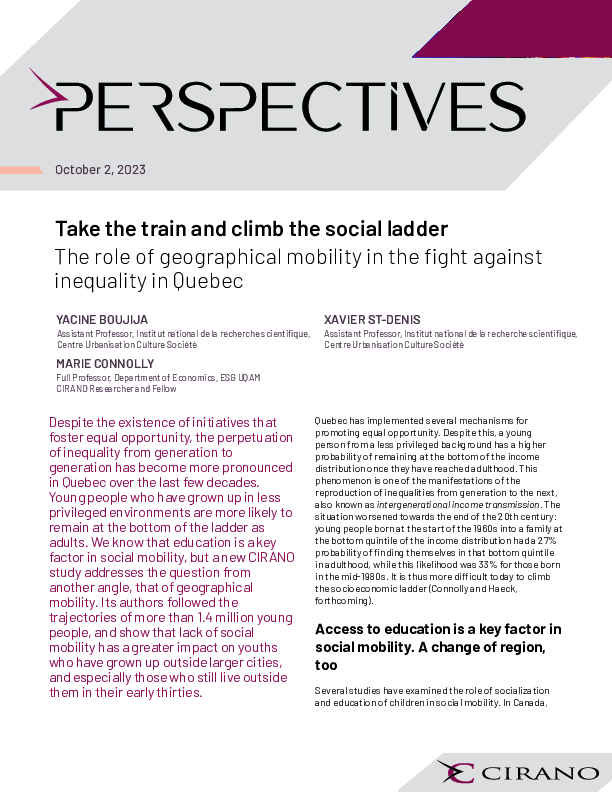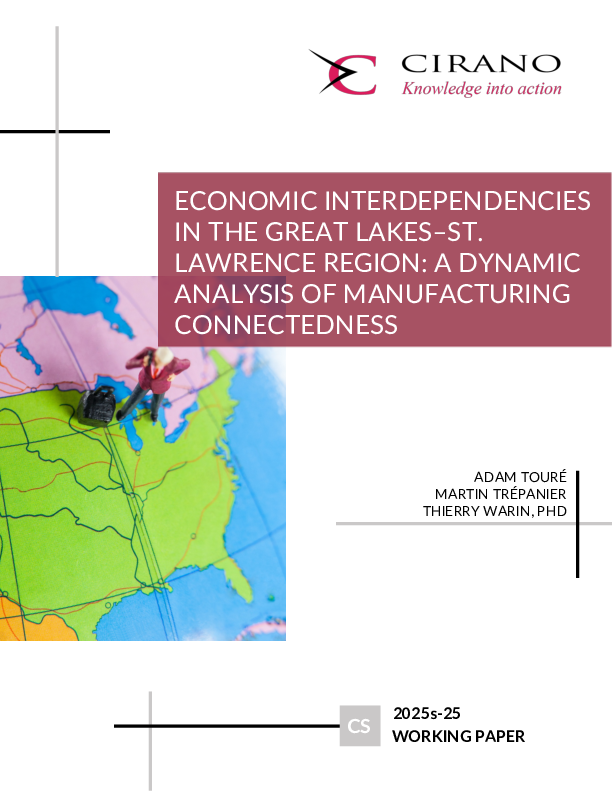Take the train and climb the social ladder: The role of geographical mobility in the fight against inequality in Quebec
→ Presentation of study analyses and results on October 30, 2023
Despite initiatives to promote equality of opportunity, the reproduction of inequalities from generation to generation has worsened in Quebec in recent decades. Youth who grew up in a less advantaged environment are more likely to remain at the bottom of the ladder as adults. We know that education is a key factor in social mobility. A CIRANO study looks at the issue from another angle, that of geographic mobility. The authors follow the career paths of nearly 1.4 million young people and show that the lack of social mobility affects more strongly young people who grew up outside major cities, particularly those who still live there in their early thirties.
This study is the first to examine the influence of geographic mobility on intergenerational income transmission in Quebec. It is based on Statistics Canada’s Intergenerational Income Database (IID), which has a longitudinal structure that tracks children to late stages of adult life. The data come from the Canada Revenue Agency’s tax data files and provide access to parent and child income information from 1978 to 2016.
In terms of geographic mobility, analyses show that the deterioration of social mobility in Quebec is mainly the result of two phenomena: on the one hand, the deterioration of the socio-economic status of young people residing outside major urban centres at age 16 and having grown up in a family at the bottom of the income distribution, and improving the situation of young people from the same regions who grew up in families at the top of the income distribution.




